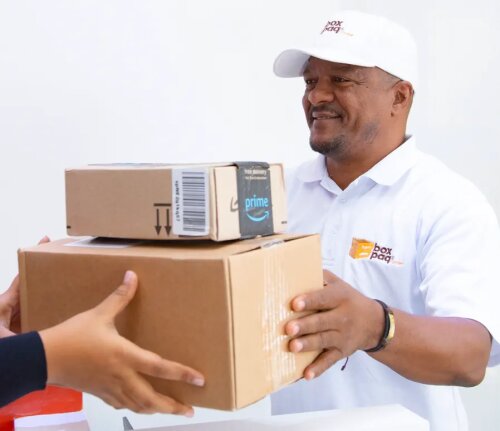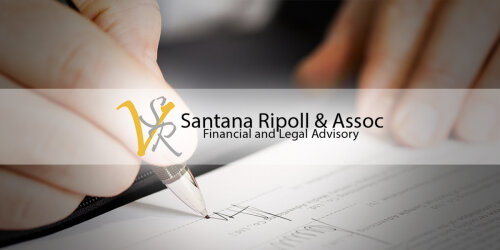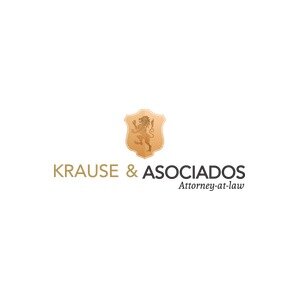Best Energy Regulatory Law Lawyers in Puerto Plata
Share your needs with us, get contacted by law firms.
Free. Takes 2 min.
List of the best lawyers in Puerto Plata, Dominican Republic
About Energy Regulatory Law in Puerto Plata, Dominican Republic
Energy Regulatory Law in Puerto Plata is governed by a comprehensive national framework designed to oversee the generation, transmission, distribution, and commercialization of energy, particularly electricity. The legal system in the Dominican Republic, including Puerto Plata, is based on several key statutes and regulations which aim to guarantee fair access to electricity, encourage investment in renewable resources, and protect consumer rights. The primary legal body overseeing the industry is the Superintendencia de Electricidad (SIE), which works alongside the Comisión Nacional de Energía (CNE) to regulate, monitor, and enforce energy laws to ensure safe and reliable energy supply for both residents and businesses in Puerto Plata.
Why You May Need a Lawyer
There are several situations where individuals or companies may require legal assistance in the field of Energy Regulatory Law in Puerto Plata. Common scenarios include:
- Disputes with electricity providers over billing errors, service interruptions, or contract terms
- Navigating the process for installing private or commercial renewable energy systems, such as solar panels
- Regulatory compliance when establishing new energy projects
- Concerns over land use and environmental impact related to energy infrastructure
- Negotiating energy purchase agreements or contracts with providers
- Understanding rights and obligations as a consumer or energy producer
- Responding to legal notices from regulatory bodies regarding alleged violations
- Managing import or export activities related to energy equipment
Having a lawyer with expertise in energy regulatory matters can help ensure compliance, protect your rights, and provide representation in any disputes or proceedings.
Local Laws Overview
The energy sector in Puerto Plata is primarily regulated by the General Electricity Law (Law No. 125-01) and its subsequent modifications. This law establishes the legal framework for the entire electricity chain, from production to consumption. Key aspects include:
- The authorization and regulation of electricity operators, including licensing requirements
- Consumer protection against arbitrary disconnects and unfair billing practices
- Promotion of renewable energy through special incentives and simplified application processes, according to Law 57-07 on Incentives for Renewable Energy
- Obligations regarding environmental protection in energy-related projects
- Tariff regulation and price-setting mechanisms managed by the SIE
- Specific rules for independent power producers and large-scale investors
- Procedures for complaints, disputes, and claims filed by consumers or providers
Regional specifics may also apply, particularly for projects or issues affecting tourist zones like Puerto Plata. Compliance with local municipal regulations and environmental codes is also necessary.
Frequently Asked Questions
What agency regulates electricity and energy matters in Puerto Plata?
The Superintendencia de Electricidad (SIE) is the main regulatory authority. The Comisión Nacional de Energía (CNE) also oversees planning and policy, especially for renewable projects.
What rights do consumers have if their electricity service is interrupted?
Consumers have the right to receive continuous service except for scheduled maintenance or force majeure. If there are unjustified interruptions, consumers may file complaints with the SIE or directly with their supplier.
How can I file a complaint about unfair billing?
You can first approach your service provider for clarification. If the issue is not resolved, you may submit a formal complaint to the SIE, which will investigate and mediate as necessary.
Are there incentives for installing solar panels in Puerto Plata?
Yes, Law 57-07 offers incentives such as tax exemptions and duty-free importation of renewable equipment. Residents and businesses may also apply for net-metering schemes.
Is it necessary to obtain a government permit to generate electricity for personal use?
Small-scale installations for personal use are generally permitted, but for larger or grid-connected systems, authorization from the CNE and a connection agreement with the distributor are required.
How are energy rates determined?
Energy rates are set by the SIE, considering production and distribution costs. Periodic adjustments may occur based on fuel prices and market conditions.
Can foreigners invest in the energy sector in Puerto Plata?
Yes, foreign investment is permitted and even encouraged, especially in renewable energy. However, investors must comply with local registration, permitting, and compliance rules.
What happens if an energy company violates environmental or safety regulations?
Violations can lead to fines, suspension of operations, or even permits being revoked. The Ministry of Environment and Natural Resources may also intervene in severe cases.
What legal options do I have if I disagree with the energy regulator's decision?
You may appeal decisions of the SIE through administrative review processes. If still dissatisfied, judicial remedies are available through the local courts.
Do energy companies need to consult communities before starting projects?
Certain projects, especially those with environmental impact, require public consultations and environmental permits that factor in community input before approval.
Additional Resources
If you need more information or wish to submit complaints, consider these resources:
- Superintendencia de Electricidad (SIE) - Regulatory authority for electricity
- Comisión Nacional de Energía (CNE) - Planning and oversight of energy policy
- Ministerio de Medio Ambiente y Recursos Naturales - Environmental regulation and permitting
- Cámara de Comercio y Producción de Puerto Plata - Support for investors and businesses in the region
- Professional associations of attorneys specializing in energy and environment
- Local consumer protection offices (Pro Consumidor)
Next Steps
If you believe you need legal advice or representation related to Energy Regulatory Law in Puerto Plata:
- Document all relevant information regarding your issue or question, including contracts, notices, and communications
- Reach out to a licensed lawyer or law firm experienced in Dominican energy law, preferably with local knowledge of Puerto Plata
- Consider an initial consultation to receive guidance on your rights, obligations, and possible strategies
- If your matter relates to regulation or enforcement, prepare for possible administrative procedures with the SIE or CNE
- Stay informed about changes in laws or incentives that may apply to your situation
Taking prompt legal action ensures your interests are protected and increases your chances of a positive resolution.
Lawzana helps you find the best lawyers and law firms in Puerto Plata through a curated and pre-screened list of qualified legal professionals. Our platform offers rankings and detailed profiles of attorneys and law firms, allowing you to compare based on practice areas, including Energy Regulatory Law, experience, and client feedback.
Each profile includes a description of the firm's areas of practice, client reviews, team members and partners, year of establishment, spoken languages, office locations, contact information, social media presence, and any published articles or resources. Most firms on our platform speak English and are experienced in both local and international legal matters.
Get a quote from top-rated law firms in Puerto Plata, Dominican Republic — quickly, securely, and without unnecessary hassle.
Disclaimer:
The information provided on this page is for general informational purposes only and does not constitute legal advice. While we strive to ensure the accuracy and relevance of the content, legal information may change over time, and interpretations of the law can vary. You should always consult with a qualified legal professional for advice specific to your situation.
We disclaim all liability for actions taken or not taken based on the content of this page. If you believe any information is incorrect or outdated, please contact us, and we will review and update it where appropriate.











